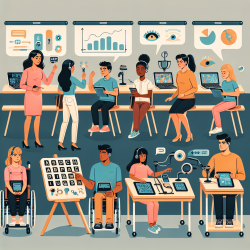Introduction
The COVID-19 pandemic has exacerbated existing gender and labor inequalities, particularly affecting working mothers. The research article, The Gendered Politics of Pandemic Relief: Labor and Family Policies in Denmark, Germany, and the United States During COVID-19, provides a comparative analysis of how these countries responded to the pandemic's challenges. For practitioners in the field of speech language pathology, understanding these dynamics is crucial to improving online therapy services for children, especially in supporting working families.
Key Insights from the Research
The study highlights the different approaches taken by Denmark, Germany, and the United States, each representing distinct welfare regimes. Denmark's social-democratic model, Germany's corporatist approach, and the U.S.'s liberal framework resulted in varied impacts on gender and labor inequalities.
- Denmark: Rapid response with robust federal salary guarantee programs and early reopening of schools and childcare facilities, acknowledging the critical role of childcare in parental employment.
- Germany: Expanded existing programs and provided subsidies, but cultural legacies of traditional gender roles delayed reopening of childcare facilities, impacting mothers' employment.
- United States: Reliance on private organizations for support, with patchwork lockdown and reopening efforts, leading to prolonged challenges for working families, particularly affecting women.
Implications for Practitioners
Practitioners providing online therapy services can draw several lessons from this research:
- Understanding Cultural Contexts: Recognize the cultural and policy contexts that families operate within, which can affect their access to therapy and support services.
- Flexible Service Delivery: Adapt therapy services to accommodate the varying schedules and availability of parents, particularly mothers who may be balancing work and caregiving responsibilities.
- Advocacy for Policy Change: Engage in advocacy efforts to support policies that enhance access to childcare and family support services, which are critical for improving outcomes for children and families.
Encouraging Further Research
While the study provides valuable insights, it also highlights the need for further research into the gendered impacts of economic crises and the effectiveness of policy responses. Practitioners are encouraged to engage with ongoing research and contribute to discussions on improving support systems for families.
Conclusion
By integrating the findings from this research into practice, speech language pathologists can better support children and families during challenging times. Understanding the broader socio-economic context and advocating for supportive policies can lead to more effective therapy outcomes.
To read the original research paper, please follow this link: The Gendered Politics of Pandemic Relief: Labor and Family Policies in Denmark, Germany, and the United States During COVID-19.










